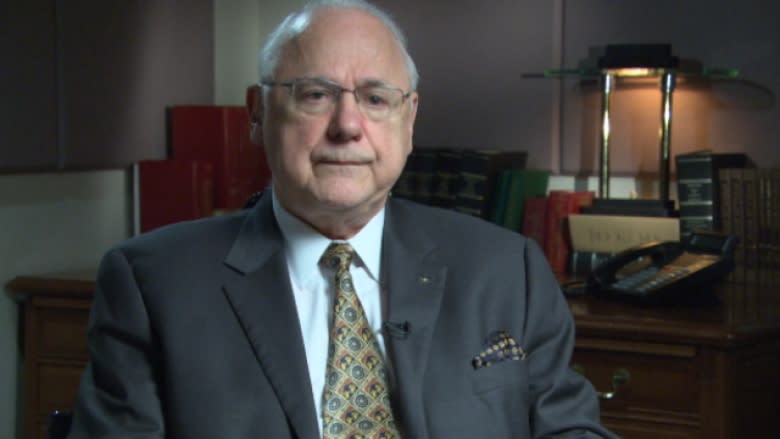Law Enforcement Review Board refuses to release controversial documents
Alberta’s Law Enforcement Review Board (LERB) is ignoring both its mandate and a court ruling by refusing to release records which detail questionable actions taken by the province’s deputy attorney general, legal experts say.
The records include emails written by deputy attorney general Kim Armstrong in 2005 in her previous role as head of internal affairs for the Edmonton Police Service (EPS).
At that time, Armstrong was personally overseeing an internal EPS investigation into how a racist email circulated for years within the police service’s downtown division.
The investigation, however, did not result in a public disciplinary hearing. The officer who produced the racist email was issued a reprimand, which stayed on his record for three years. He has since been promoted to sergeant.
The Criminal Trial Lawyers’ Association appealed the police chief’s handling of the case to the LERB.
In a 2009 LERB hearing, emails between Armstrong and the internal affairs detective assigned to the racist email investigation were entered into evidence. The LERB ruling said those emails appeared to show Armstrong and the detective were more concerned with protecting the police force’s reputation than thoroughly investigating the email.
The LERB is a quasi-judicial body which adjudicates appeals related to police officer discipline. Its hearings are open to the public and documents entered into evidence are supposed to be accessible by the public, just as they are in a court.
In January, CBC News exercised its right to access all records related to the racist email hearing. The LERB provided an audio recording of the hearing but told CBC it would have to file a Freedom of Information and Privacy (FOIP) request for the paper documents.
Court ruling
The LERB said a FOIP request for the records was necessary pending the outcome of a Court of Appeal ruling. The Edmonton Police Service had appealed a previous LERB decision which essentially ruled documents entered into evidence at an LERB hearing should be readily publicly accessible, just as they are in the courts.
The Court of Appeal upheld the previous ruling but the LERB continues to refuse to release the Armstrong emails. In a letter to CBC, board secretary Barbara Newton said its interpretation of the court ruling is that the records are subject to FOIP, and were properly withheld.
The audio recording provided by the LERB to CBC contains the words written by Armstrong in the emails because they were read into the hearing record by Tom Engel, the lawyer for the Criminal Trial Lawyers’ Association. Engel provided the emails to CBC.
“It seems odd that the Law Enforcement Review Board is throwing up these roadblocks to getting access to documents that were tendered and discussed at a public hearing, in a very serious matter involving the oversight of the Edmonton Police Service,” Engel said.
“All of the words were in public,” he said. “If anybody was sitting in that room, they would have heard them. And I know the media was in the room, hearing it, and published information about it.
“So any solicitor-client privilege, if it ever existed, was waived. So it no longer existed. So I just frankly have no idea how you could claim solicitor-client privilege.”
Newton of the LERB acknowledges that the emails are already public, but said she won’t release them pending a review now being conducted by Alberta’s information and privacy commissioner.
Bad precedent set, expert says
Ottawa lawyer Michel Drapeau is a recognized expert in freedom of information. CBC asked him to review the Court of Appeal ruling, and the emails for which solicitor-client privilege has been asserted.
Drapeau said the LERB is flouting the court ruling by denying access to the Armstrong emails.
“Unless I am blind to something - and I have read the decision twice, every line - that (Court of Appeal) decision is crystal clear.” Drapeau said. “And I don’t see where the Law Enforcement Review Board has any leg to stand on except to give full force immediately to that decision, which is, to make (the Armstrong emails) available.
“You do not have to go through a freedom of information request in order to gain access to a public record, a record of a judicial proceeding,” Drapeau said. He added that Canada’s open-court concept allows any citizen, on request, to have access to all records brought into evidence in a judicial process.
Drapeau said that if the Edmonton Police Service wanted to keep those emails from being made public, it should have asked the court for a sealing order or a publication ban. But that didn’t happen, so the LERB can’t now retroactively apply legal privilege to those documents through FOIP, he said.
Even if FOIP applied to the documents, Drapeau said the Armstrong emails clearly don’t meet the test for solicitor-client privilege detailed in the FOIP Act. He said Armstrong provides no legal advice to the detective, they clearly don’t have a solicitor-client relationship, and there is no intention to exchange the information in confidence.
Drapeau said the LERB has set a bad precedent by ignoring the court’s ruling.
“It is wrong; there is no excuse,” he said.



